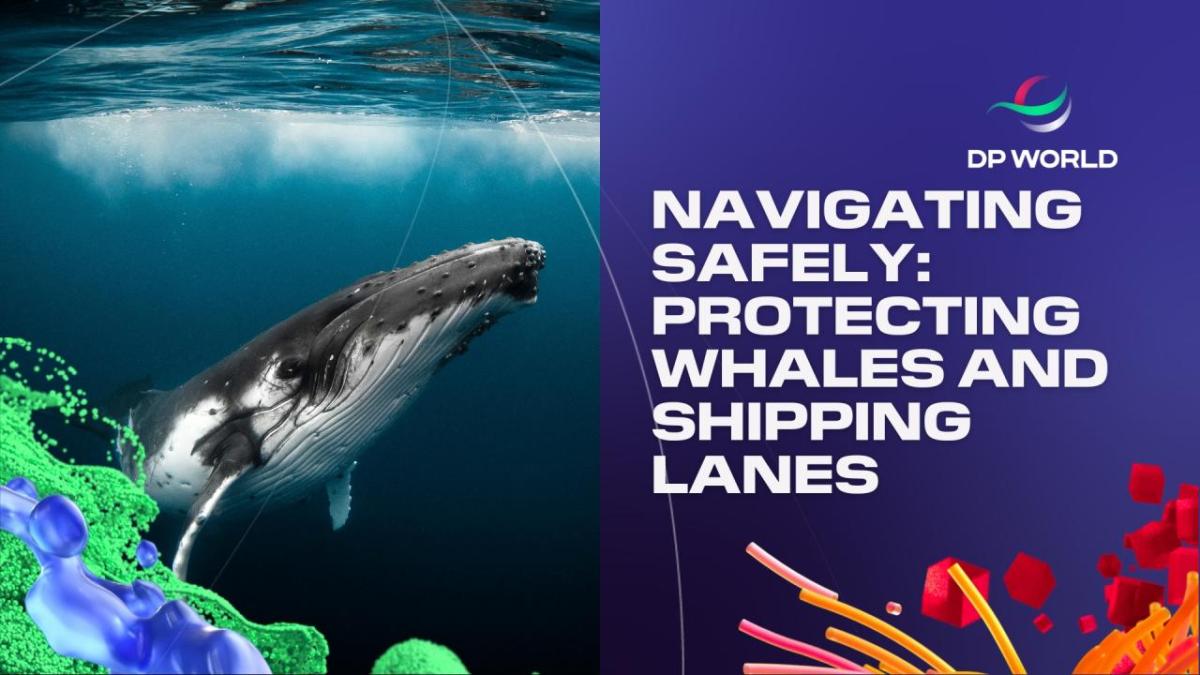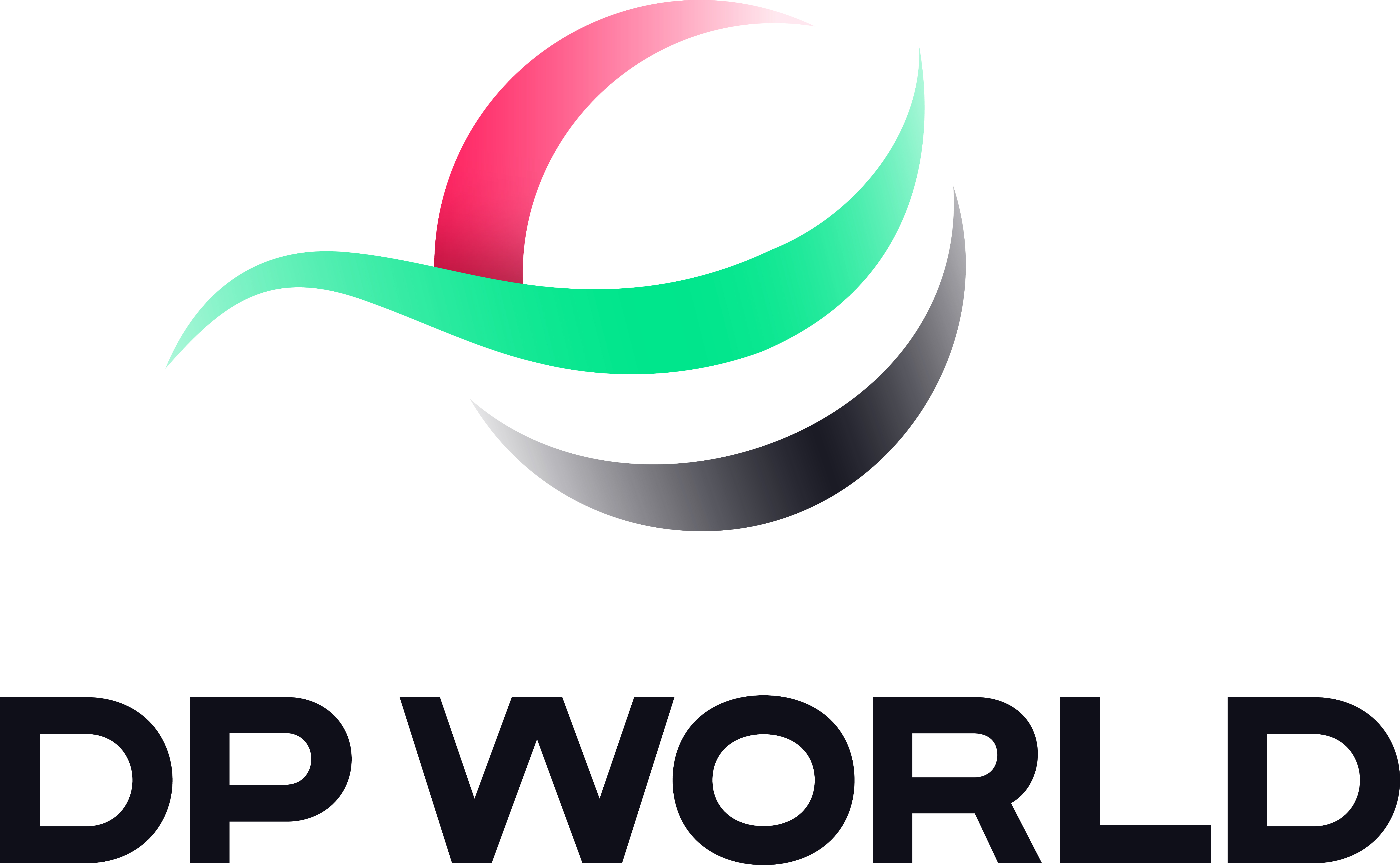Protecting Whales, One Alert at a Time: DP World Aims To Reduce Ship Strikes and Preserve Marine Ecosystems With Ocean Wise
When ships and whales collide, it can have devastating consequences. That is why DP World and Ocean Wise are teaming up to stop collisions from happening.

Collisions between whales and ships are a growing problem in our oceans. The numbers speak for themselves: Ship strikes are one of the leading causes of injury and death for large whales. To resolve this, DP World, a global logistics giant, has partnered with global conservation organization Ocean Wise, to expand the reach and effectiveness of their Whale Report Alert System (WRAS).
Tackling the Problem Head-On: Imperfect solutions?
For years, marine experts have sought ways to reduce the impact of human activity on whale populations, and various mitigation strategies have emerged. Traditional solutions include mandatory speed restrictions in areas known to be frequented by endangered species. For example, in the eastern U.S., ships over 65 metres in length must reduce their speed to 10 knots or less in regions where endangered North Atlantic right whales are known to swim. This has been highly effective, reducing strike-related mortality of these whales by 80-90%. However, speed restrictions alone are only part of the solution.
That’s where Ocean Wise’s WRAS comes in. Launched in 2018, WRAS is a cutting-edge conservation tool designed to protect whales from ship strikes and disturbance by alerting mariners to their presence in real-time. The WRAS is informed by the public and professional observers through the WhaleReport app and automated detections from infrared cameras and hydrophones. Alerts are sent to nearby mariners, giving them a heads-up to slow down or change course. The system serves as a vital lifeline for whales, allowing professional mariners to take immediate action to avoid collisions.
As Lasse Gustavsson, Ocean Wise’s President and CEO puts it: “The goal of WRAS is to enable mariners to take mitigation measures to help reduce acoustic and physical disturbance to vulnerable cetaceans.”
Enter DP World: A Partnership with Global Potential
DP World’s decision to deepen its involvement with the WRAS program was a no-brainer, building on the previous support of Ocean Wise’s Whale Health & Monitoring program. As Doug Smith, CEO of DP World in Canada, noted: “The work that Ocean Wise does is critical. We wanted to enhance our pre-existing agreements with them to forge a more robust partnership by supporting WRAS. The success of an initiative as important as this is crucial not only for the benefit of marine life whose waters DP World’s shipping lanes use, but also for the system to be adopted globally for everyone’s benefit.”
“Working with Ocean Wise on this project made sense given the importance of protecting and enhancing oceans while supporting equitable trade systems, where nature and humans flourish. Enhancing our partnership with Ocean Wise will support implementation of DP World’s Ocean Strategy 2024-2030 in the Salish Sea, a unique inland sea ecosystem located in the Pacific Northwest region of the United States and Canada and home to 37 marine mammal species, including several endangered whale populations," added Sarah Mouriño, Senior Director, Sustainability - Americas.
The WRAS goal is ambitious: by 2025, WRAS aims to triple its detection capabilities globally, and DP World’s funding has been instrumental in expanding the WRAS’ real-time whale detection capabilities. Increased promotion of the WhaleReport app and integration with other detection technologies, such as infrared and acoustic systems, are both expanding the program. As part of this effort, DP World has supported the integration of two hydrophones and four infrared camera systems, which help detect whale presence 24/7, even in remote areas and during the dead of night.
Moreover, DP World is helping embed WRAS into the operational procedures of at least three professional marine organizations. This could mean integrating WRAS with navigational software and ensuring that it’s used as a standard tool in vessel operations centers. According to Ocean Wise, the system has already sent out 30,225 alerts as of October 31, 2024—a whopping 404% increase since from the 2023 baseline. Impressively, 7.1% of those alerts came from the newly integrated automated sources like hydrophones and infrared cameras.
Dr. Chloe Robinson, Director of the Ocean Wise Whales Initiative, added: “Given the demonstrated success of the WRAS in the Pacific northwest, we are excited for the global potential of the WRAS to mitigate ship strikes for many more whales. We would not be able to expand our ship strike solution without the support of DP World, and we are looking forward to working closely together to achieve our shared vision of safer waters for whales.”
A Global Solution with Tangible Results
The Whale Report Alert System is more than just a local or regional tool—it’s a model for global sustainability in ocean conservation, a cause that sits at the heart of DP World’s Ocean Strategy for 2024 - 2030. With the expansion of WRAS, there’s potential to not only drastically reduce the number of whale strikes but also mitigate the broader environmental impacts of shipping. Shipping lanes are some of the busiest highways on Earth, making it critical to minimize their ecological footprint. By giving mariners the information they need to make real-time decisions, WRAS helps to reduce vessel-related noise, which can stress whales and disrupt their essential behaviors. In turn, this preserves the health of the entire marine ecosystem.
Beyond the immediate benefits to whale populations, the global implementation of WRAS could set a precedent for responsible maritime practices. As more shipping companies and marine organizations adopt the system, the ripple effects will be felt far and wide. With DP World’s involvement, the system is poised to scale up, reaching new waters and protecting whales in every corner of the globe. After all, as Ocean Wise reminds us, “[Whales] are the environmental guardians of our ocean. Their health and wellbeing are the most useful indicators of the health of the entire ocean ecosystem.”
In short, WRAS is proving that technology and sustainability can go hand in hand. It’s a win-win for the shipping industry and the environment. By reducing the risk of collisions and disturbances, WRAS not only helps save whales but also ensures that our oceans remain healthy and vibrant for generations to come.

